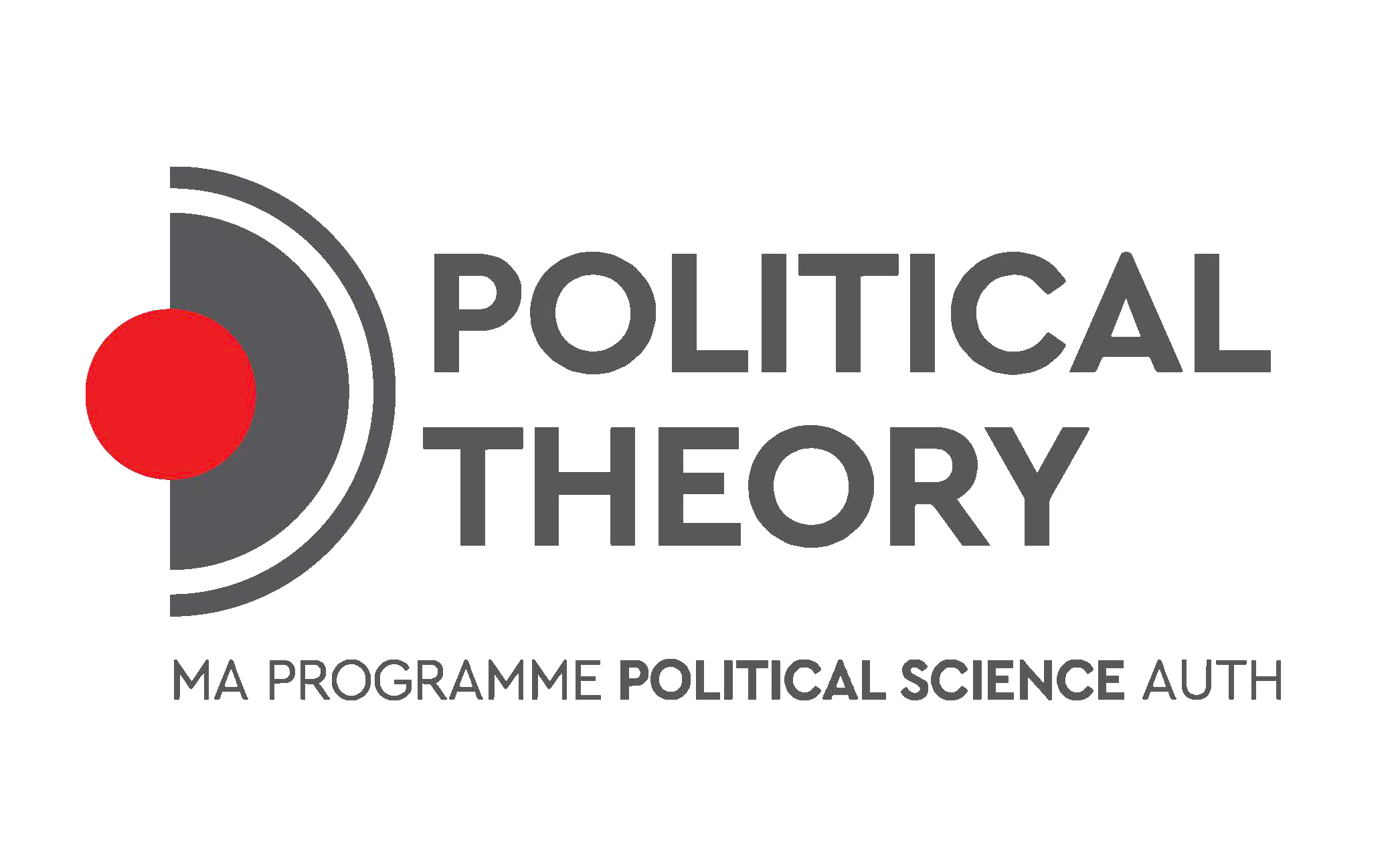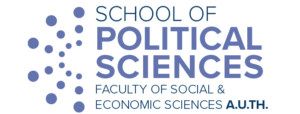Introduction
This document briefly summarizes the quality policy that orients and determines the design and implementation of the Master’s Programs of the School of Political Sciences at the Aristotle University of Thessaloniki with special emphasis on the Postgraduate Program in Political Theory. The quality policy of the School’s Master’s Programs is constantly aligned to the Greek legislative and regulatory framework; in addition, as it is a complementary text to the quality policy adopted and implemented by the Aristotle University of Thessaloniki at large, it is aligned, specifies, redesigns and reaffirms its objectives on an ongoing basis, implementing the quality strategy of the university.
Basic Principles
The primary objective of the School is to provide students in all cycles of their studies with an excellent quality education that prepares them for a successful career in the field of political sciences, public administration and international relations. In order to achieve this, the School follows and implements the quality policy of the Aristotle University of Thessaloniki, in particular the objectives concerning the continuous advance in the quality of education and research (and its dissemination at the level of the international academic community); the improvement in the quality of the procedures, operating protocols and services of the School; the ongoing enhancement of working conditions and the quality of life in the School; the achievement of transparency at all levels and an increased impact on society, on the Greek polity and the broader public sphere.
As far as its multiple postgraduate programs are concerned, and especially with regard to the Postgraduate Program “Political Theory” (hereinafter referred to as the Program), the School has formulated and implements an integrated quality policy that guides their development process, and complements the quality policy of the Aristotle University of Thessaloniki while also complying with the relevant special standards set by the HAHE.
In summary, the present document on the quality policy pertaining to the School’s Master’s Programs focuses on three main goals: (1) the sustained pursuit of academic excellence, (2) developing a thorough, rigorous and successful educational process, and (3) facilitating the continuous improvement of its Master Programs.
Academic Excellence
The School of Political Sciences is committed to providing high-quality education to its students. The Postgraduate Programs of the School are designed to provide students with an in-depth understanding of the various sub-fields within the political sciences, including theory, methodology, and concrete empirical analysis. The Programs are designed to always remain rigorous, comprehensive, and up to date, and to reflect the highest standards of quality in teaching, research, and assessment.
To achieve this goal, the School employs highly qualified teaching staff (faculty members and contracted personnel) who are experts in their respective fields and committed to teaching, research, and service for students. Teaching staff members bring a wealth of knowledge and experience to the classroom, and they use innovative teaching methods to help students learn and increase their skills and knowledge. Within the Postgraduate Program in Political Theory, special emphasis is placed on Research-Led Teaching practices insofar as the instructors’ experience from significant research projects (for example, POPULISMUS, HETEROPOLITICS, etc.) orients their educational practices. It is thus expected that the assumed distance between theory and empirical analysis can be effectively bridged for the benefit of the students enrolled.
The School ensures, through its evaluation protocols, that faculty members teaching in its Master’s Programs continue to have the necessary qualifications, expertise, and experience to deliver high-quality instruction and mentoring to our students.
The School also ensures that its Postgraduate Programs comply with the specifications and provisions imposed by the current regulatory framework and with the guidelines regulated by the Aristotle University of Thessaloniki, including all obligations arising or determined by accreditation bodies and the State; at the same time, the School operates an internal quality assurance system.
The School also offers state-of-the-art facilities to its students. The Master’s Programs are supported by modern classrooms, computer labs, and research facilities, something currently enhanced by the relocation of many of its facilities to a new building (12 Vas. Herakleiou Street). The School also provides access to a vast array of academic resources, including online databases, e-journals, and books. This ensures that students have at their disposal all the resources needed to succeed in their studies. The School Office offers the necessary administrative support to all Postgraduate Programs.
In addition, the School conducts its Master’s Program development process in an ethical and responsible manner, adhering to the highest standards of academic and professional integrity.
Thoroughness and Rigor of the Educational Process
The rigorous and successful education of our students stands at the heart of the quality policy of the Postgraduate Programs in the School of Political Sciences. The School pursues and is committed to providing students with the tools they need in order to achieve their academic and professional goals. To this end, the School offers a supportive educational environment that encourages academic success and personal development, and includes clear and measurable learning outcomes for each Postgraduate Program and the assessment of whether participants have achieved these outcomes, using a variety of methods, such as exams, written assignments and projects, as well as ongoing assessment.
The Postgraduate Programs of the School are designed to help students develop the critical thinking, the research competence and the analytical skills required to successfully conduct and complete complex research/applied projects in the sub-fields of political science of their interest. Cumulatively, the School offers a comprehensive curriculum covering a wide range of subjects, including international relations, political analysis, comparative politics, political theory, political history, and public policy (as well as, for example, art and the public sphere, a joint Master’s Program organized together with the Faculty of Fine Arts, in which many instructors from the Postgraduate Program in Political Theory also participate). The Programs also offer opportunities for students to engage in concrete research and the drafting of scientific texts, including high-level scientific dissertations (accessible, after their successful assessment, through the University website).
In addition, in order to ensure the qualitative enhancement of its Postgraduate Programs, the School follows a policy that actively involves our students in the development of Postgraduate Programs, regularly requesting their evaluation and incorporating their comments into the redesign of the Postgraduate Programs. Within the “Political Theory” Program, we have lately inaugurated, in addition to annual course evaluations, the involvement of students in a comprehensive appraisal of the Program and the learning experience as a whole.
Commitment to Continuous Improvement
The School of Political Sciences is committed to the continuous improvement of all its educational programs so as to provide students with an outstanding education that prepares them for successful careers in political science. To achieve this goal, the School engages in the ongoing assessment and evaluation of its Master’s Programs.
Within this context, the School regularly reviews its curriculum, teaching methods, and, as far as it is permitted by the circumstances, its facilities and infrastructure to ensure that they meet the needs and requirements of its students. As already stated, the School also seeks feedback from students and faculty to identify areas for improvement. The feedback is used to review and make changes, if necessary, to the Master’s Programs, including updates to the curriculum, changes to teaching methods, and upgrades to facilities.


